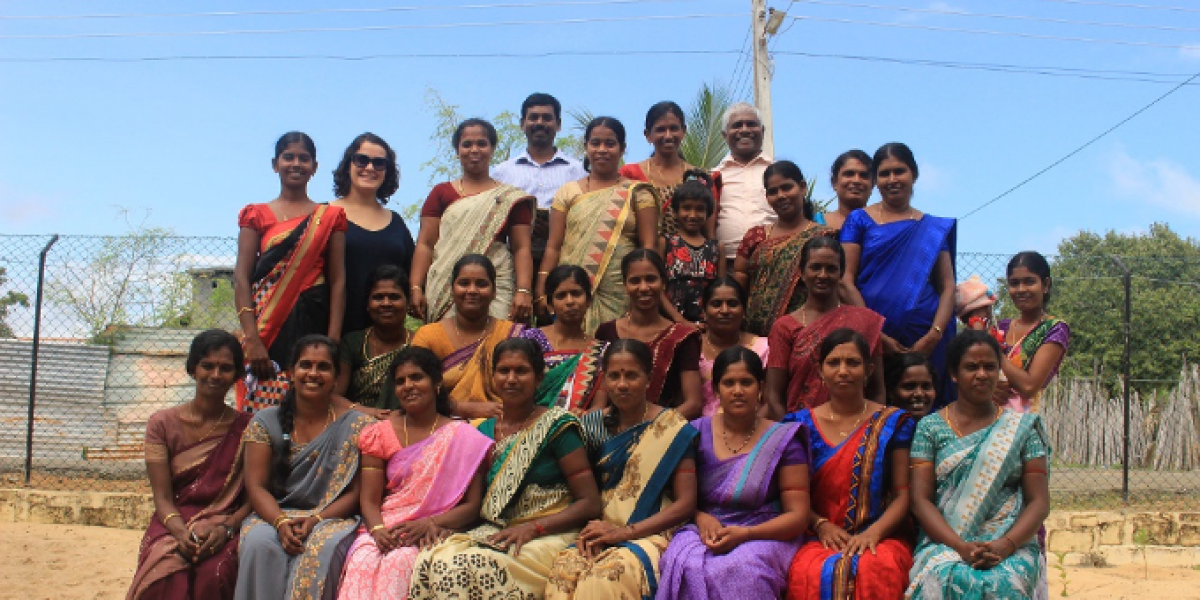Sri Lanka: Ramya’s Story of Return
07 April 2018|Sch. Anto SJ and Antony Arulraj, JRS South Asia

Ramya has been going back and forth from Tamil Nadu, India to Sri Lanka ever since she was a child. She first came to Tamil Nadu with her parents in 1990 as a ten-year-old girl, and returned to Sri Lanka five years later. She found the situation highly oppressive with a number of army sentries that restricted the movement of even innocent civilians. Because of this, she came back to Tamil Nadu in 1996.
She started working with JRS as a teacher and married Rajan while living in a camp. Now she is the mother of two girls, aged 11 and 8 years. Her husband returned to Sri Lanka in 2012, and Ramya and her daughters joined him in December 2016.
“My husband and I wanted to sever the ‘refugee’ tag from our identity. We want our children to live as free citizens in their own land, even if our decision implied hardships,” she replied when asked why she chose to return to Sri Lanka.
They live in a resettlement village together with about 10 other families that returned from Tamil Nadu camps. The construction of the houses in that resettlement village was sponsored by the Government of India. “The house is large enough for a family used to live in refugee camps,” she says, pointing out that she experiences greater freedom of movement now.
After an initial period of uncertainty, Ramya’s husband now has regular work in Colombo as a painter. It may be difficult for a returnee family to find suitable work or jobs during the first six months, but it can well establish itself later on. Having been a JRS teacher for 16 years, she is confident of finding a good job in the immediate future. Her fluency in English has attracted a handful of students for evening tuition.
Ramya is happy with the Sri Lankan government support for children’s education. Each child is given free education, a free school uniform, a free school bag and stationary, a free noon meal, and a free bicycle.
NGOs are not very visible in their resettlement village. However, when approached, they do provide succor and support for erecting fences, bore wells, and so on. They offer assistance in purchase of net and boat to fisher folk as well.
Ramya and her husband could not return to their native village, which has been occupied by the Sri Lankan Navy. They have access to the church there only on Sundays during the stipulated time. The church has no resident pastor, of course. The children are able to access the school there only during the day time on the working days. The Navy has cleared the forest near the original village and created a resettlement village there, where Ramya’s mother lives.
Ramya doesn’t hesitate to say that she is missing Tamil Nadu as living conditions were better there, including good transport facilities, affordable medical facilities, and easy access to town/city markets where variety of goods are available at reasonable prices.
“Don’t return here seeking to do only painting jobs, equip yourselves with entrepreneurial skills that will stand you in good stead,” she has to say to those contemplating repatriation to their homeland.
Names have been changed to preserve the anonymity of the parties.



